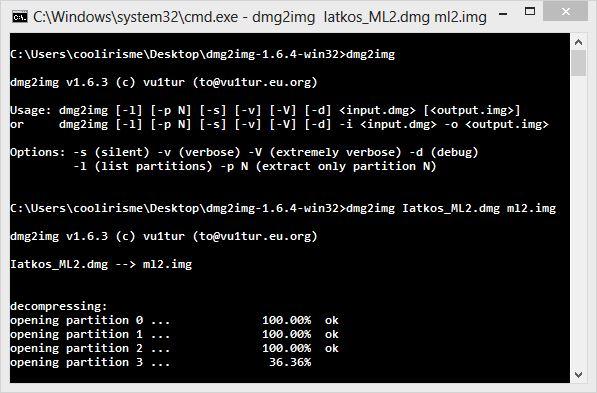Mac Command Line Dmg Silent Install
- Oct 23, 2019 To install it silently, use the following Mac command line: sudo installer -pkg /path/to/SEPRemote.pkg -tgt / The target (-tgt) must be the root of the file system; SEP cannot be installed elsewhere.
- Feb 12, 2014 How to Install Command Line Tools in Mac OS X (Without Xcode) Feb 12, 2014 - 37 Comments Mac users who prefer to have a more traditional Unix toolkit accessible to them through the Terminal may wish to install the optional Command Line Tools subsection of the Xcode IDE.
Mac Dmg File
Installing Nuke on Mac OS X. Nuke 8.0v7 is installed separately to any previous versions installed. The installation package installs Nuke, NukeX, Nuke Assist, and the Nuke PLE version, and icons for these appear in your installation folder. To install Nuke on Mac OS X, see either:. Installing Nuke with the User Interface (UI), or. Installing Nuke from the Command Line.
Install Dmg File
| Click here to return to the 'Installing packages from the command line' hint |
is that some packages (notably Fink) don't work using this installer application. Kind of frustrating when you need a command-line app on a remote computer and you can't install Fink in order to install the app! :-)
---
www.AcornWebDesigns.com
Quality websites for inexpensive prices (Is that an oxymoron?)
I also discovered this installer command the day that I read the recent article here about installing a no-ip linux client as a startup item. The .pkg that was pointed to by that article did not work via the command line. I had to do it from home. Even then it still didn't seem to be workgin right, though, so I removed it and installed the fink version which seems to be working, once I understood how to set that version up. A fully working command-line installer is much needed, but if it works on some things now that's still pretty good....
---
--- I hate Microsoft and I vote
cd /
sudo /usr/sbin/installer -pkg /path/to/pkg.pkg -target / ---
4am Media, Inc. Mac OS X Training and Consulting

sudo reboot is a harsh command, I believe you'd use all unsaved documents, I wouldn't recommend doing it this way.
Something like:
sudo osascript -e 'tell application 'Finder' to restart'
Would be much better. It would get canceled if there is unsaved data.

arr, but if your using the cli to install packages most likely the box is on a remote site, so u cant press 'save' or 'don't save' and the restart would time out
there has to be away of avoiding this because it would be nice to be able to restart and / or log out a user via the cli
jameso
---
'The time has come,' the walrus said. 'To talk of many things...'
Then use localhost & port 5900 in your vnc client. You can have the remote machine always running the vnc server, or run it from the ssh shell.
Of course, if you go this route, isntalling via the CLI is pointless since you can just do it via the GUI.
The applescript is all very nice, but if no one is logged into the remote machine is does not work, the response is '29:36: execution error: Application isn't running (-600)' (tested with OS X 10.3.5)
This is great. Now if only I could create packages from the command line rather than using PackageMaker interactively.
You can create packages from the command line. i've done it in 10.4, but haven't tried in 10.5.
in tiger, PackageMaker will load in /Developer/Applications/Utilities/PackageMaker.app
but really all .app's are just folders, so you can call the CLI by /Developer/Applications/Uitilities/PackageMaker.app/Contents/MacOS/PackageMaker
you'll have to feed it a number of flags like -build and -p... i think there's a man page for it somewhere.
If you look in /usr/sbin/ a couple of utils already stand out because of their name:
AppleFileServer
AppleSystemProfiler
DirectoryService
PasswordService
installer
softwareupdate
am-eject
nvram
system_profiler
appletalk
asr
bootparamd
disktool
screencapture
diskutil
You can find out what they do by looking at their man pages or running them (not as root obviously)
Mac Command Line Dmg Silent Install For Iphone
Some of these don't have man pages. Notably (for me):
opendiff - run the cocoa diff utility on two files
scselect - select network location
disktool - I'm sure this does something handy